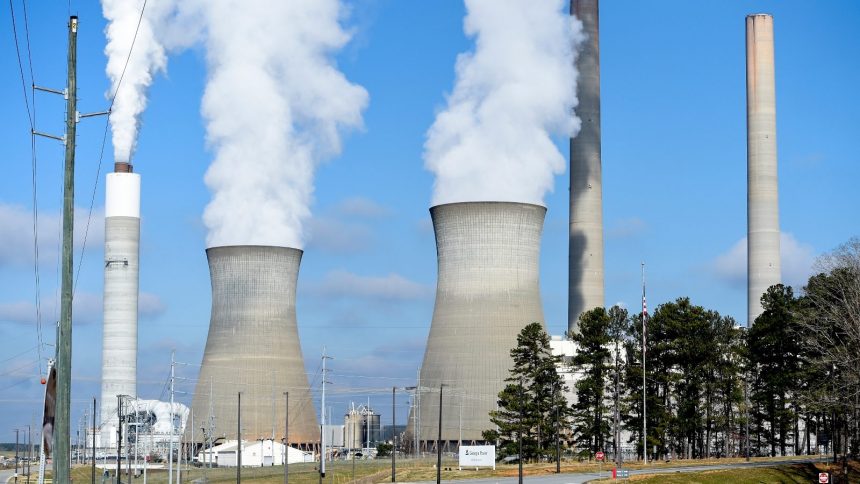This story is part of a collaboration with Grist and WABE to shed light on the Georgia Public Service Commission, the influential state-elected board responsible for crucial decisions ranging from increasing electricity rates to developing renewable energy. Last October, Georgia Power presented regulators with what it described as a crisis. The utility warned that the demand for electricity would surpass production in the winter of 2025 if no action was taken. The state’s efforts to attract data centers and new manufacturing plants had strained the aging power grid. The Georgia Public Service Commission had approved Georgia Power’s long-term grid plan in 2022, expecting the demand to increase by a factor of 17 by 2030. As a solution, Georgia Power proposed various resources to meet this rising demand, including purchasing power from neighboring utilities, incorporating solar and battery storage, and constructing three new natural gas turbines capable of generating 1,400 megawatts of electricity annually.
However, experts, including some within the commission’s staff, questioned the projections made by Georgia Power and its forecasting method. They argued that the growth in energy demand might take longer to materialize, providing the utility with more time to address the issue. The plan to rely on gas-powered turbines faced criticism from both experts and the public, who advocated for carbon-free solutions.
The utility’s decision to enter into power purchase agreements with other companies without competitive bidding also raised concerns among ratepayer advocates and environmentalists. Georgia Power bypassed the standard procedure of issuing a request for proposals, using a provision in Georgia law to make exceptions for resources that necessitate immediate action. The lack of transparency in the pricing of these agreements raised further suspicions.
The deal approved by the Georgia Public Service Commission in April 2024 allowed Georgia Power to purchase electricity from its Mississippi and Florida counterparts. The agreement included additional costs for Georgia Power and kept a coal plant in Mississippi operational, contrary to plans approved by Mississippi regulators to retire the plant by 2027 due to excess capacity and environmental concerns.
The arrangement drew criticism for transferring the pollution and cost burden of coal power from Georgia to Mississippi, prompting environmental groups like the Sierra Club to challenge the deal. The dispute highlighted the implications of offshoring externalities associated with coal power. Public questioning in January 2024 revealed concerns over the environmental impact of the deal on Mississippi and the role of Georgia Power in offloading pollution to other states.
Overall, the story underscores the complex and far-reaching consequences of decisions made by the Georgia Public Service Commission and the utility company.






